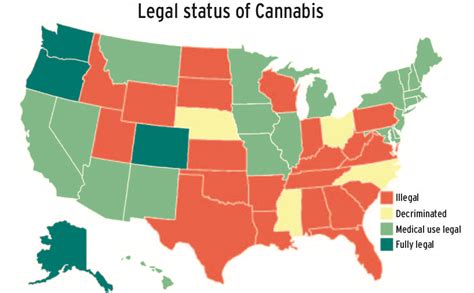On October 6, 2022, President Biden announced significant reforms concerning marijuana. The statement began with a bold move to pardon all prior federal offenses of simple possession of marijuana, marking a pivotal shift in the federal approach to cannabis. The President has directed the Attorney General to develop a process to issue certificates of pardon to individuals eligible under this relief.
The legality of marijuana in the United States remains a complex issue. Despite its illegal status at the federal level, over half the states, along with the District of Columbia, Guam, Puerto Rico, and the U.S. Virgin Islands, have enacted laws legalizing marijuana for medical use. Furthermore, the trend towards legalization for non-medical adult use is on the rise, creating a widening policy gap between federal regulations and state actions. No state has reversed its stance on the legalization of medical or recreational marijuana to date.
However, the Centers for Disease Control and Prevention (CDC) highlight the potential health risks associated with marijuana products containing tetrahydrocannabinol (THC). These risks include impairment and the potential to affect memory, attention, decision-making, and risk-taking behaviors. The CDC emphasizes the need for continued research to understand the safety profiles of various consumption methods.
Despite the federal illegality of marijuana and THC, states with legalized use have seen a burgeoning industry emerge, with retail sales to individuals over 21 years of age. This industry includes not only retail stores but extends to wineries, breweries, coffee shops, and online dispensaries, with home cultivation also being a popular option.
Moreover, the Food and Drug Administration (FDA) acknowledges the usage of unapproved cannabis or cannabis-derived products for treating medical conditions, yet it stresses the importance of conducting thorough research and approval processes for these substances.
While calls to poison control centers for marijuana exposure have not shown a significant increase post-legalization, compared to other household products, the number of calls in states with legalized marijuana has risen since legalization.
Cannabis sativa L., the plant from which marijuana is derived, contains over 80 cannabinoids, with CBD and THC being the most well-known. The FDA continues to evaluate the public health impact of these compounds and the plants that contain them.
For more information, visit the White House’s briefing on marijuana reform, the CDC’s information on marijuana, or explore the Congressional Research Service’s report on federal marijuana policy.
